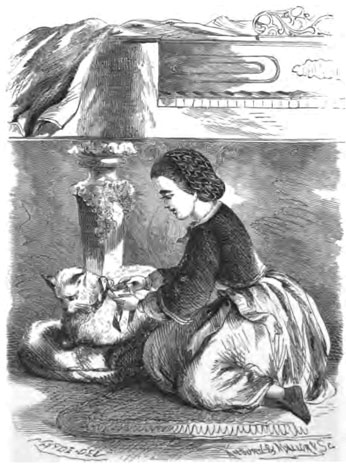Edward Everett.
Methinks I see one solitary, adventurous vessel, the “Mayflower,” of a forlorn hope, freighted with the prospects of a future state, and bound across the unknown sea. I behold it pursuing, with a thousand misgivings, the uncertain, the tedious voyage. Suns rise and set, and weeks and months pass, and winter surprises them on the deep, but brings them not the sight of the wished-for shore. I see them now, scantily supplied with provisions, crowded almost to suffocation, in their ill-stored prison, delayed by calms, pursuing a circuitous route,—and now, driven in fury before the raging tempest, on the high and giddy waves. The awful voice of the storm brawls through the rigging.
The laboring masts seem straining from their base; the dismal sound of the pumps is heard; the ship leaps, as it were, madly, from billow to billow; the ocean breaks, and settles with engulfing floods over the floating deck, and beats with deadening, shivering weight, against the staggering vessel.
I see them escape from these perils, pursuing their all but desperate undertaking, and landed at last, after a five months’ passage, on the ice-clad rocks of Plymouth,—weak and weary from the voyage, poorly armed, scantily provisioned, without shelter, without means, surrounded by hostile tribes.
Shut now the volume of history, and tell me, on any principle of human probability, what shall be the fate of this handful of adventurers? Tell me, man of military science, in how many months were they all swept off by the thirty savage tribes, enumerated within the early limits of New England?
Tell me, politician, how long did a shadow of a colony on which your conventions and treaties had not smiled, languish on the distant coast? Student of history, compare for me the baffled projects, the deserted settlements, the abandoned adventures of other times, and find the parallel of this.
Was it the winter’s storm, beating upon the houseless heads of women and children? was it hard labor and spare meals? was it disease? was it the tomahawk? was it the deep malady of a blighted hope, a ruined enterprise, and a broken heart, aching in its last moments at the recollection of the loved and left, beyond the sea? was it some, or all of these united, that hurried this forsaken company to their melancholy fate?
And is it possible, that neither of these causes, that not all combined, were able to blast this bud of hope? Is it possible, that from a beginning so feeble, so frail, so worthy not so much of admiration as of pity, there has gone forth a progress so steady, a growth so wonderful, an expansion so ample, a reality so important, a promise, yet to be fulfilled, so glorious?
—Edward Everett.
From the Painting by A. W. Bayes. Engraved by E. Heinemann.
The Departure of the Mayflower.


